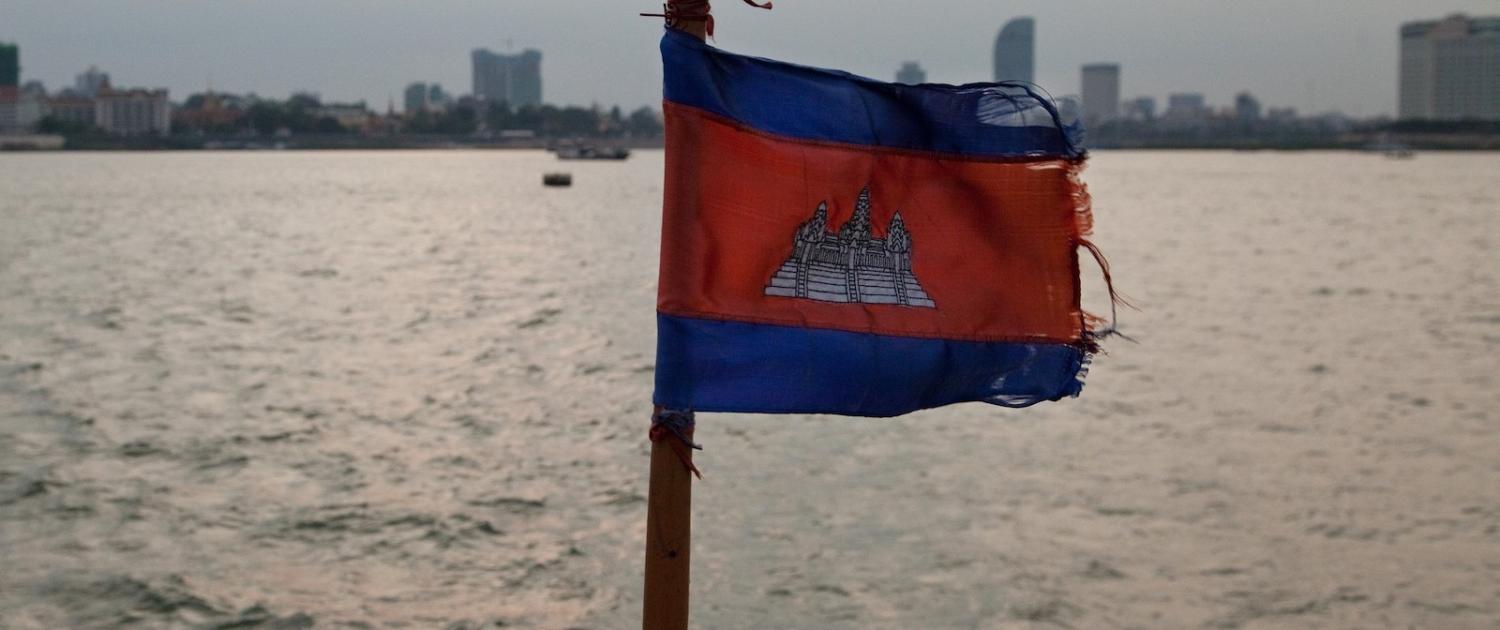Cambodia’s Supreme Court has denied bail to Australian film-maker James Ricketson in an espionage case that is fast becoming an embarrassing headache for both countries involved.
In laying espionage charges against Mr Ricketson – a messianic crusader of the poor – Cambodia has inadvertently drawn an international spotlight on its deeply broken judiciary. The more this escalates, the more Canberra can expect to reap the consequences of making bedfellows with questionable regimes.
Australia has been keen to keep attention away from dubious aspects of Cambodian governance, such as the performance of its courts, because of a shambolic deal signed with Phnom Penh in 2014 to settle refugees in exchange for tens of millions in aid. To justify the deal – which has seen only a handful of people relocated to the tiny kingdom – Canberra had to paint a rosy picture of Cambodia as a suitable destination country.
Yet as the Australian press watches the Ricketson case closely, they will also notice that in the past six months Cambodia has dissolved the opposition party, jailed its leader, banned more than 100 of its members, imprisoned two other members of the media, and been put on notice for US-targeted sanctions.
It will also be apparent that Cambodia’s Prime Minister Hun Sen has declared he is willing to eliminate a couple of hundred people if necessary in the lead-up to elections this year – telling opponents to “prepare your own coffins”.
The Australian press is starting to ask why Canberra isn’t doing more to help Ricketson when Foreign Minister Julie Bishop directly intervened to secure the release of Al Jazeera reporter Peter Greste in 2014 after he was detained on spurious charges in Egypt.
Greste has now publically lent his support to Ricketson.
But most of all, Australians are seeing the wheels of Cambodian justice in action.
“Independent” courts
Ricketson has waited for more than seven months without hearing the actual accusations against him, and could remain in prison for as long as 18 months before going to trial.
The last time he was scheduled to receive a ruling on his bail application, the judges delayed because the prison van was late. This time the ruling was handed down before Ricketson even arrived, according to The Phnom Penh Post.
Meanwhile, Ricketson's family says he is being held in a cell with 140 other inmates.
These types of antics are the norm in a judicial system that the World Justice Report ranked second last globally in 2016 for public perceptions of the rule of law, and in which the International Bar Association says corruption is “endemic”. Cambodia’s courts have long been held under the thumb of Hun Sen, who has ruled the country for more than three decades. His Cambodian People’s Party this month admitted three members of the same court ruling on Ricketson’s bail, including a judge and a prosecutor, into its central committee.
“Who am I spying for?”
That was the question Ricketson asked reporters at his first scheduled bail verdict, and there is still no answer.
His charge came though as the ruling party prosecuted a sweeping crackdown on its opponents in politics, the media, and civil society, claiming members of all were complicit in a vast, US-backed conspiracy to overthrow the government. The key piece of evidence was a video of opposition leader Kem Sokha, taken in Australia, extolling the value of US training in grass-roots democratic mobilisation – apparently an act of treason in Cambodia.
Ricketson was reportedly flying a drone at an opposition rally at the time of his arrest, but the now defunct party has made it clear for years that they wanted nothing to do with him and his film-making projects.
Not many people do.
Ricketson has a habit of levelling accusations against members of the child protection industry, based on inconclusive supporting evidence, before publicly lambasting reporters and human rights defenders who cannot stand up to his allegations.
The issues he has raised often warranted investigation but are complex, and his methods of pursuing them have been so combative as to turn many away.
Ricketson has trained his sights on foreign embassies, including Australia’s and Britain’s, as well as many journalists, including myself.
He has been convicted of defamation twice, and has also had a long-running spat with Screen Australia, which banned him from applying for funding because it said he had harassed and intimidated staff.
For decades, Ricketson has selflessly devoted his meagre financial resources and energy to several impoverished Cambodian families. But his methods of fighting perceived injustices have been reckless and made him plenty of well-connected enemies.
Those he has rankled have taken ammunition from his defence of convicted paedophile David Fletcher; an illustration that Ricketson has pursued his convictions with little regard for their political ramifications.
It is in this context that Canberra finds it must defend the sovereignty of Cambodia’s courts. It also demonstrates why reporters and rights defenders did not exactly rush to Ricketson’s defence with the usual zeal afforded a fellow defender of the truth.
More are concerned about the plight of two Cambodian journalists, Uon Chhin and Yeang Sothearin, who have been charged in a similarly worrying use of espionage laws against much more impactful local-language media.
But now the spotlight of media scrutiny is inevitably, and rightly, illuminating Ricketson’s case.
His family released a statement expressing disappointment after bail was denied, concerned that Ricketson, at almost 70 years of age, had lost weight through his ordeal.
“We’re just not sure how long he can endure these conditions”, the family said. “He is a kind, decent and honest man, and has, over the last 22 years, volunteered a lot of his time and money to help poor families in Cambodia. We firmly believe James is innocent of espionage or any other crime and hope to see him return home soon.”

